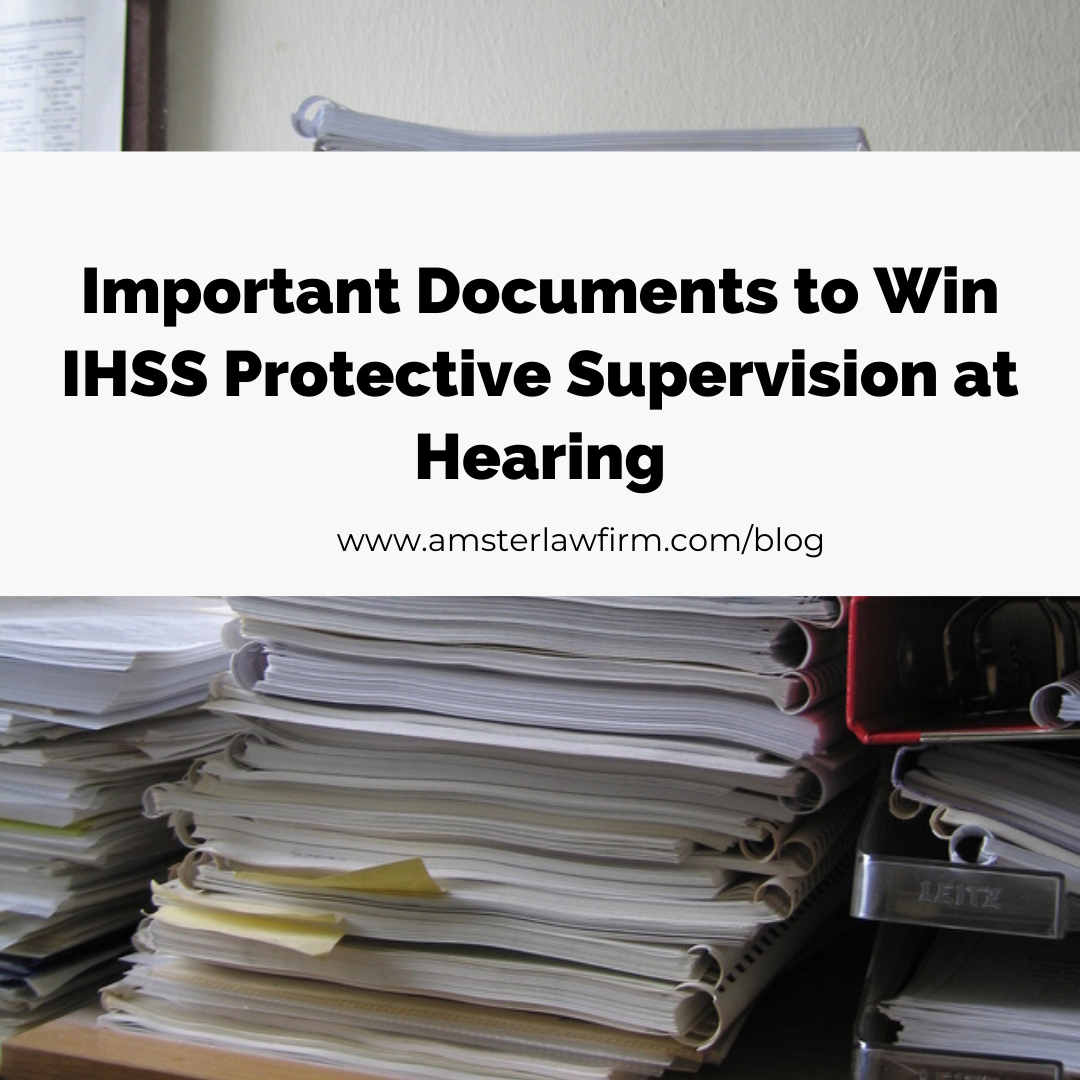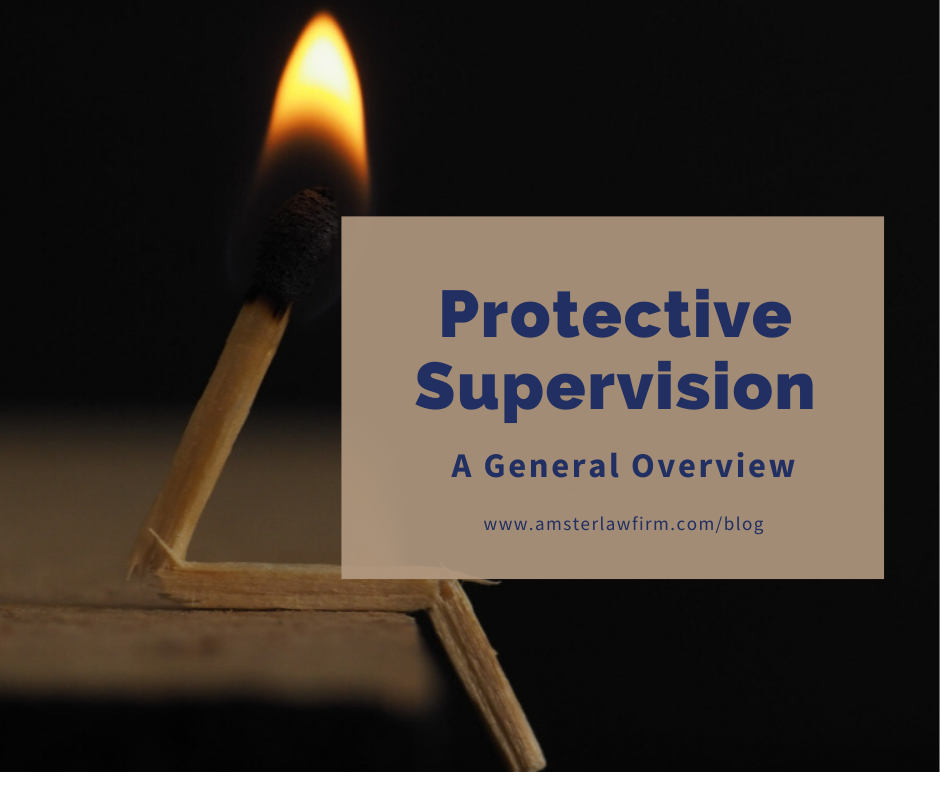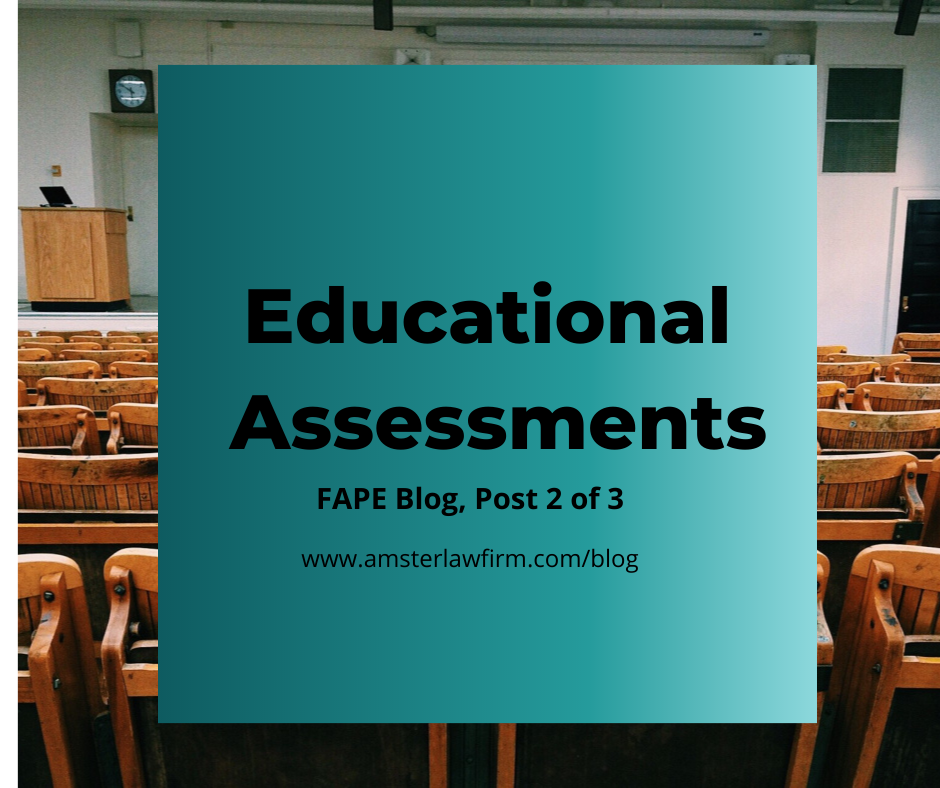
Special Education and Regional Center Blog
On April 27, 2020, much to my surprise, U.S. Secretary of Education Betsy DeVos recommended Congress not make any exceptions to the Free Appropriate Public Education (FAPE) and Least Restrictive Environment (LRE) requirements of the Individuals with Disabilities Education Act (IDEA) during the COVID-19 pandemic (for an overview of FAPE and LRE, click here.) This is welcomed relief to parents and advocates of students with disabilities. Secretary Devos emphasized that learning must continue for all …
Continue reading “COVID-19 Updates: Federal and State Announcements about Special Education”
Read MoreWhether you’re applying for protective supervision for the first time or appealing a denial, your ability to provide the right documentation will likely make or break your case. We help our clients present the following documentation: Dangerous Behavior Log; Assessment of Need for Protective Supervision (SOC 821); Individualized Education Program (IEP) (if the applicant is a minor); Regional Center Documents, such as an Individual Program Plan (IPP) and Individualized Family Service Plan (IFSP) (if the …
Continue reading “Important Documents to Win IHSS Protective Supervision at Hearing”
Read MoreIt goes without saying that with the current COVID-19 crisis has changed learning for special education students. Some students have Zoom classes all day long and some get photocopied worksheets. Some love learning at home while others have trouble even sitting down in front of the computer. Here are a few ideas to consider during this unprecedented time. 1. It Is All Ok. Learning remotely is hard for all students. Remote learning is even harder …
Continue reading “What You Should Be Doing During COVID-19”
Read MoreProtective supervision is an In-Home Supportive Service (IHSS) program in California for both minors and adults who, as a result of a mental impairment or mental illness, require oversight 24 hours a day to guard against injuries, hazards, or accidents. The purpose of protective supervision is to allow recipients to remain safely at home. IHSS pays providers, including parents, potentially upwards of $3,000 per month. “Non-severely impaired” recipients are entitled to 195 hours of care …
Continue reading “Protective Supervision- A General Overview”
Read MoreFAPE Blog, Post 2 of 3. Click here for Post #1. An educational assessment or evaluation is a critical catalyst for the IEP process. Assessments help identify the student’s learning needs and determine whether the student requires special education services. In order to provide special education services, a school district must first assess the student in all areas of suspected disability. After receiving a referral, the district has 15 calendar days to send an assessment …
Continue reading “Educational Assessments”
Read More



